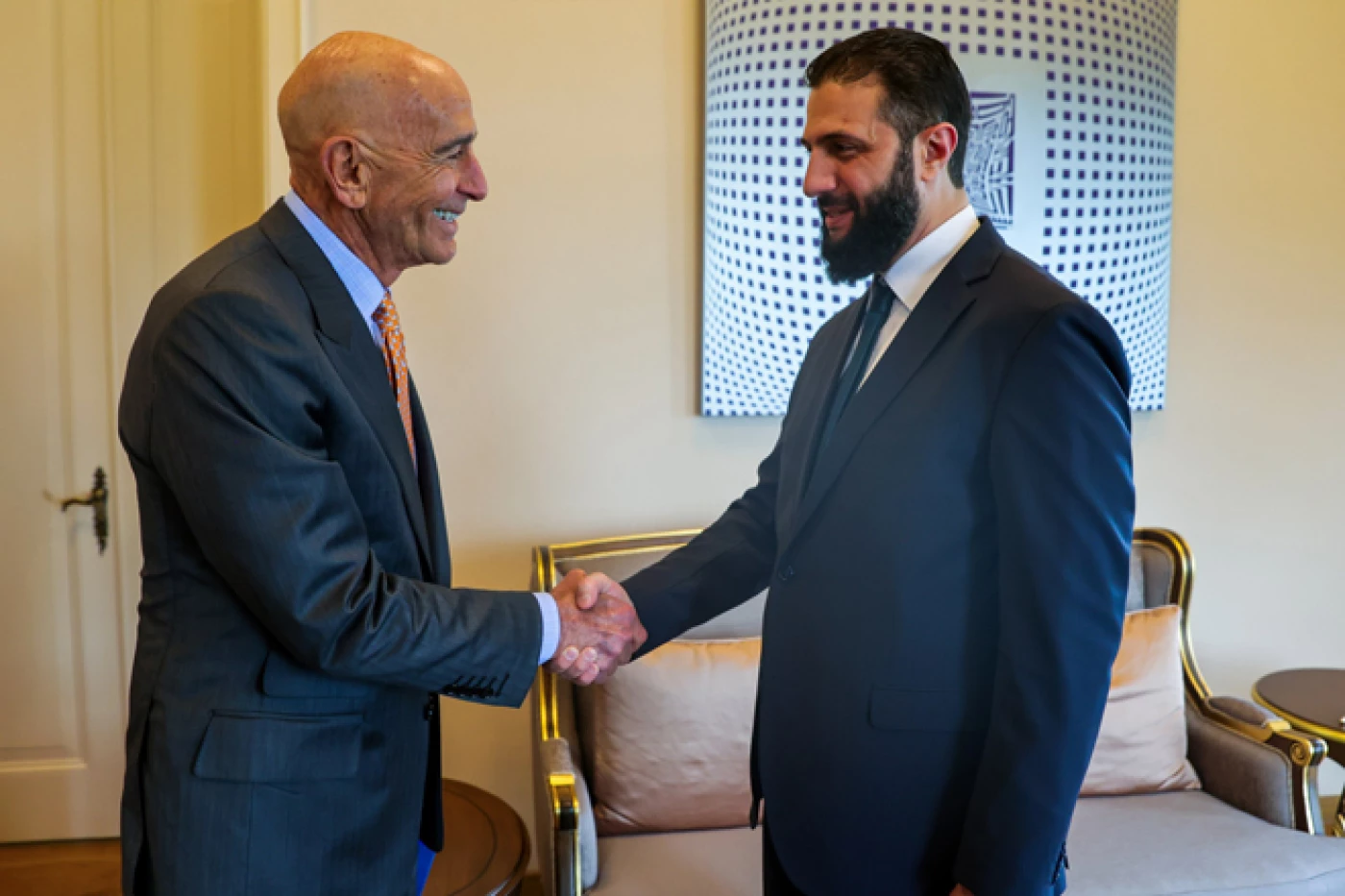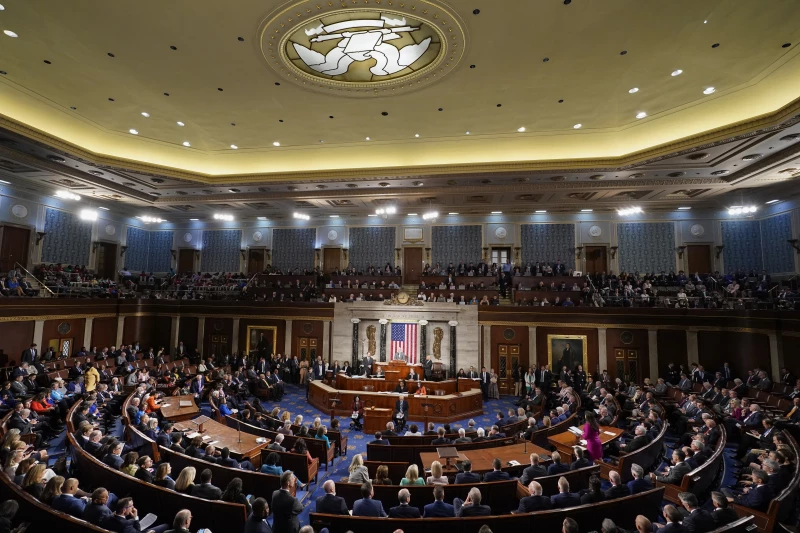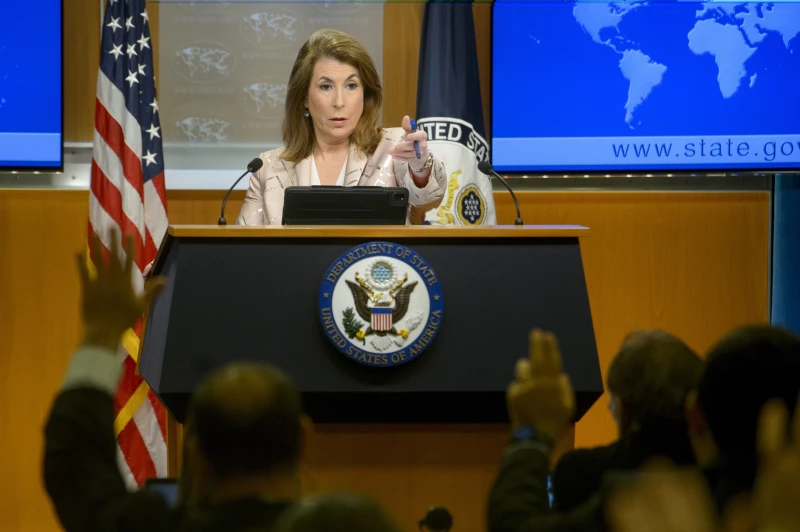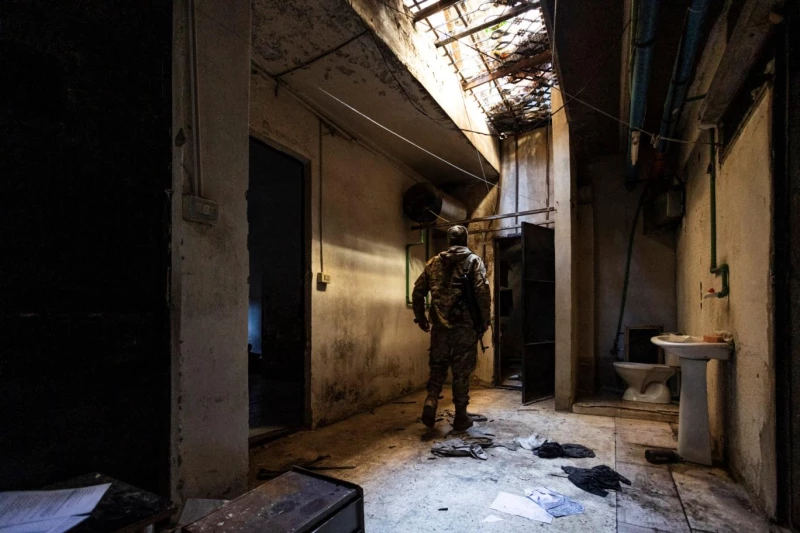ERBIL, Kurdistan Region of Iraq – Syrian President Ahmed al-Sharaa on Saturday met with US Ambassador to Turkey and Special Envoy for Syria Tom Barrack in Istanbul, where they discussed the integration of the Kurdish-led Syrian Democratic Forces (SDF) into state institutions, as well as the need to ensure Syria’s territorial sovereignty.
Sharaa arrived in Turkey on Saturday, where he was received by President Recep Tayyip Erdogan at the Dolmabahce Palace in Istanbul. Later on, Sharaa held a meeting with Barrack, during which they discussed the recent lifting of US sanctions on Syria, as well as the SDF.
“The two sides emphasized the need to implement a comprehensive agreement with the SDF that guarantees the return of the Syrian government's sovereignty over all Syrian territory,” read a statement from Sharaa’s office, adding that the pair also discussed mechanisms for the integration, in a way that contributes to “unity of decision-making and national sovereignty.”
Kurds in northeast Syria have been enjoying a de facto self-governing autonomy since the early 2010s. Established in 2018, the Autonomous Administration of North and East Syria (AANES) has been in charge of the territory’s internal affairs, with the SDF acting as its de facto army. The Kurdish authorities currently control around 25 percent of Syrian territory.
The SDF has been the main partner of the US-led global coalition against Islamic State (ISIS) in Syria. The coalition provides the SDF with aerial support, munition, aid, and training, and has remained a close ally to the Kurdish-led forces since the fall of the Bashar al-Asaad regime.
The Kurdish authorities have on numerous occasions voiced their desire for a decentralized Syria. SDF chief Mazloum Abdi in February called for “a decentralized, secular, and civil nation founded on democracy that respects the rights of all its components.”
Abdi’s remarks were followed by a Kurdish Unity Conference in late April, which included Kurdish representatives from the Kurdistan Region, Turkey, and Syria, in addition to representatives from the US, and discussed a preapproved declaration consisting of 26 articles, asserting that Syria must be “decentralized” and urging “the unification of Kurdish regions as an integrated political and administrative unit within the framework of a federal Syria.”
After months of deliberation and negotiations, Sharaa and Abdi signed an agreement in March to officially integrate the Kurdish-led forces and all other institutions in northeast Syria into the Syrian state institutions. If implemented, the agreement would also cover AANES.
Despite this, disagreements still run deep between the Kurdish authorities and Sharaa’s government about the model of governance in Syria, with Sharaa aiming to consolidate power and maintain full sovereignty over all Syrian territories, while the Kurds advocate for a federal state where they maintain a degree of self-governance.


 Facebook
Facebook
 LinkedIn
LinkedIn
 Telegram
Telegram
 X
X



